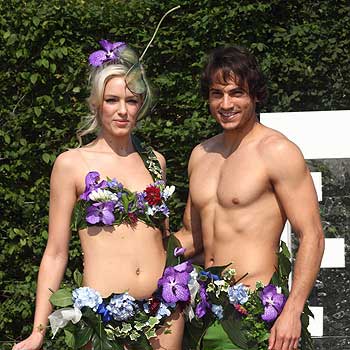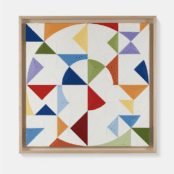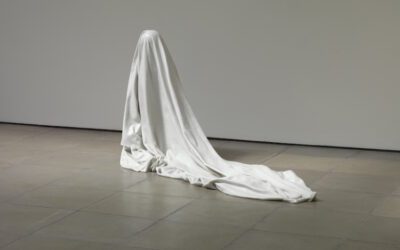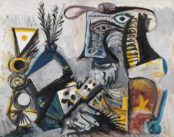Justice relates to truth, fortitude to goodness, and temperantia to beauty; while prudence, in a sense, comprises all three. The type of realism which behaves as if the good, the true, and the beautiful were too vague and subjective to be adopted as the highest aims of social or individual life, or were the automatic spin-off of the successful pursuit of wealth and power, has been aptly called ‘crackpot-realism’.
E.F.Schumacher, Small is Beautiful: A Study of Economics as if People Mattered. 1973
[dropcap style=”font-size:100px; color:#992211;”]P[/dropcap]eople go to festival for the stories.
They start packing with the idea of taking all the things they’ll need for their adventures, be it drugs, condoms, their lucky pulling pants or a fine Costa Rican blend. These stories are all ideas that come more or less to fruition over the course of weekend, shared by people with a common premise however widely divergent those ideas manifest.
 WOMAD is an emotive festival of which music becomes the focus at varying degrees at various times. Partly ecological fayre, part activistic showcase, part global awareness program a lot more goes on around the stages than is commonly publicised. It is these festival side events that show the tone of the festival and the aesthetics of these micro-stages create for the audience the material and ideological basis of their weekends as well as providing the backdrop for the audience to play out their stories with each other. The main performance played out by political campaigners and local produce burger is unified ‘Small is beautiful’.
WOMAD is an emotive festival of which music becomes the focus at varying degrees at various times. Partly ecological fayre, part activistic showcase, part global awareness program a lot more goes on around the stages than is commonly publicised. It is these festival side events that show the tone of the festival and the aesthetics of these micro-stages create for the audience the material and ideological basis of their weekends as well as providing the backdrop for the audience to play out their stories with each other. The main performance played out by political campaigners and local produce burger is unified ‘Small is beautiful’.
The political make-up of the festival resounds with guardian readers, people who do good and believe themselves ignorant of the minutiae of larger global issues but well versed in the broad strokes of global affairs. While the bands play, in a myriad of areas other needs are catered for, from traditional massages to Reiki, from pamphleteers of global crises to local organisations with local issues. Overtly the appeal of the field situated WOMAD for the seasoned suburbanite is more than musical. WOMAD allows people to delve into the more grassroots concerns and perhaps gain some insight into ways that they can do better in their day-to-day urban lives.
The world at large is in a bad state and festivals for a long time have been seen as an idealistic escape from the normal and into the realms of possibility. Separated from work and home-life a good summer festival is bathed in a golden light. Either through preparation or expendable cash the festivalgoer is separated from the need to produce and easily settles back into the loving embrace of fetterless consumption. WOMAD is no different in this respect however the theme of capital and political conscience underpins everything from music to massages. Behind this conscience lies the blueprint Small is Beautiful written in 1973 by economist turned Buddhist E.F.Schumacher.
WOMAD a wider relevance
The relevance today of the Small is Beautiful (1973) doctrine is in questioning the rationale of businesses being ‘too big to fail’ A claim which once heralded the perennial stability of blue chip companies has now been overturned. ‘Too big to fail’ as we have been made painfully aware signals apocalyptic overtones of widespread social collapse should such a business fail. Just as we are being asked to cover the mistakes made by these financial institutions there is increased pressure from the public to make those responsible accountable. The term ‘witch hunt’ may be tempered to mean making those who once personally profited from leading banks into this financial mess be compelled to make restitution in excess of ‘bad luck, try again don’t forget to collect your bonus at the door’. However the answer it seems isn’t so much bad individuals as systemic issues based on bad codes of practice. WOMAD isn’t a true social microcosm since the punters aren’t producing however the small businesses and charities present an attempt at working within the Small is Beautiful doctrine.
Everywhere people ask: ‘What can I actually do?’ The answer is as simple as it is disconcerting: we can, each of us, work to put our own inner house in order. The guidance we need for this work cannot be found in science or technology, the value of which utterly depends on the ends they serve; but it can still be found in the traditional wisdom of mankind.
E.F.Schumacher, Small is Beautiful: A Study of Economics as if People Mattered. 1973
WOMAD Buddhist Economics
In context Schumacher’s Buddhist Economics is deeply relevant to the world music movement; yippy politics, globalisation and ethnic artistry have worked together for some time. However looking at the central concepts of Schumacher’s work in relation to WOMAD 2010 there are some interesting contradictions and revelations.
1. Man is small, and, therefore, small is beautiful.
There is a welcoming space for the smaller scale economic enterprises at WOMAD from glass blowers to local produce. Jamie Oliver is a potential exception as his commercial reach extends further than most others. One could also argue that his profile is also not small, his media presence once omnipresent in the UK has with employ of tactical PR teams become more select and arguably more effectively global. It might well be possible that he is taking this concept onboard and certainly he has championed ethical produce for some time and even changed the practices of some of the larger supermarket chains. Musically, WOMAD brings in high selling artists to delight of the audience who are in themselves part of commercial enterprises (record companies) larger than those Schumacher would endorse (Universal).
2. A Buddhist economist would consider the capitalist approach excessively irrational: since consumption is merely a means to human well-being, the aim should be to obtain the maximum of well-being with the minimum of consumption…. The less toil there is, the more time and strength is left for artistic creativity. Modern economics, on the other hand, considers consumption to be the sole end and purpose of all economic activity.
Festivals are particularly consumptive environments, to reach the stages one must walk past all number of store selling a variety of wares, generally enticing and novel. However the main event is the music a satisfying artistic endeavour that requires no further economic involvement than the initial ticket. The extent to which the cover price is used to cover the costs of the set-up versus profit is unknown. Speaking with some of the organisers two things become apparent firstly that they truly love the work they do and secondly none of the ones I met could be considered excessively wealthy. Of course economic definitions of wealth may differ on the basis of what is considered material necessity and I spent a large sum of money over the weekend, specifically on non-Buddhist beer. The central question is whether the act of going to a festival in itself is in Schumacher’s terms an act of consumption or artistic creativity. Arguably it is both and it is an area that Schumacher does directly deal with; consumption as creativity other than as a form of mystification of the capitalist process. If people believe that consumption is a creative process then they will nod and agree with Schumacher’s belief in the work/life ratio without having to challenge the deleterious processes of over production (environmental stresses through industry, anomie).
The environmental cost of bringing artists from around the world to perform in rural England must be great but certainly much less than that of 35 thousand people travelling to each of those places to see each of those artists in situ despite the massive uplift in local economies. However the presentation of consumptive choices at WOMAD is not absolute, the audience is allowed to bring food to the site and whether you choose to buy food from the vendors is a personal choice of convenience. Strictly in terms of time and cost it is more efficient for me to buy food at the site and in many cases you are purchasing directly from the producer. Moreover, other than Jamie Oliver there is a distinct lack of brand about WOMAD.
3. It is clear, therefore, that Buddhist economics must be very different from the economics of modern materialism, since the Buddhist sees the essence of civilisation not in a multiplication of wants but in the purification of human character. Character, at the same time, is formed primarily by a man’s work. And work, properly conducted in conditions of human dignity and freedom, blesses those who do it and equally their products.
Overwhelmingly, the nature of consumption at WOMAD is guided by the artisan ethic. From Musicians to cream teas to Jamie Oliver’s large stall there is a direct connection with the product and its preparation. The celebrity chef as a cultural phenomenon is essentially the glorification of the artisan ethic to industrial ends. However the focus of the festival stalls is informed by the for-people-by-people ethic and most stall holders including Jamie Oliver’s staff are willing audience members at some point during the weekend.
4. The most striking about modern industry is that it requires so much and accomplishes so little. Modern industry seems to be inefficient to a degree that surpasses one’s ordinary powers of imagination. Its inefficiency therefore remains unnoticed.
The festival stall’s inefficiencies are directly observable to all, spilled ketchup, soaked piles of unused napkins, accidentally fallen wooden forks and discarded paper beer cups. However, all these things are dutifully avoided where larger organisations might deem them inconsequential compared with the cost of changing practises, equipment or suppliers. A small army of children motivated by remuneration rabidly collected beer cups. Stall related wastage minimised for both aesthetic and economic reasons. Given that many festival goers were inebriated increased service on the part of stall holders minimises wastage as well as increasing the sense of value for each purchase.
5. Wisdom demands a new orientation of science and technology towards the organic, the gentle, the non-violent, the elegant and beautiful.
Small nomadic businesses such as those that frequent festivals must be technologically simple, energy efficient and non-polluting, failure in any of these areas results in down-time, increased haulage costs, and aesthetic failure. The aesthetics of the WOMAD business must be flawless since most stalls are overtly on show ugly machinery drives people away. New technology that facilitates these needs is immediately used and over 2008 2010 saw more solar panels in operation by stalls and increasingly by campers.
6. The way in which we experience and interpret the world obviously depends very much indeed on the kind of ideas that fill our minds. If they are mainly small, weak, superficial, and incoherent, life will appear insipid, uninteresting, petty, and chaotic.
Amongst the food and strange clothing stalls there were a lot of very earnest people raising interest for a number of charitable causes and global issues. Big ideas brought local. One group were publicising water access in Africa while others talked about some of the local issues affecting people in Wiltshire. The group that left me most enthusiastic was Jumbulance.
Jumbulance is privately funded venture that takes handicapped people or people with a life threatening illness on excursions. The Jumbulance group provides travel and accommodation facilities for people with special needs (special beds, oxygen masks etc) with 24 hour care provided by volunteers. For Dave, an organiser for Jumbulance, when asked why he organised the outing he looked shocked. Was I questioning his motives? Is he a ghoul? As it happened he seemed shocked that I had to ask. He felt that if it was possible for someone to do something for other then they should. Simple.
One of the core values for both Dave and Jumbulance is to help people who might otherwise be isolated from society to be included believing that for many people with disabilities reconnecting with society is a central part of their rehabilitation. On this occasion this brought a group of about ten wheelchair bound people to WOMAD and organised for them to witness a performance by the Oxford based folk group Stornoway for BBC radio up close. What started out as a reasonably surreal performance became something quite special as the severely handicapped wheelchair bound audience and their carers looked on in rapt attention. Often with severely handicapped people there is a difficulty in understanding what they mean or are feeling and conversely the frustration of not being understood must be ten times worse. However, for the band adoration is as it comes and performing to their best I would say a connection was made. Moreover for Dave and the volunteers it was an immediate reward for their efforts.
The key values that Schumacher wishes to see are definitely taken into account in festivals like WOMAD. However, for the majority participation occurs unconsciously – the potentials and reasons behind their purchases or involvement as unknowing as a day reading the Guardian or shopping in Sainsbury’s. The ethical adjuncts to product become deciding factors in purchases but remain a largely unconsidered obeisance to peer pressure and undecided consensus. This isn’t to say that WOMAD attendees are ignorant only that like all of us once investigated there is a tendency not to go over the same issues repeatedly once our minds have been made up, the indicators of that previous decision are all that we really look for, for instance the fair trade or soil association logo. No one wants to live in an overwhelmingly preachy environment however compared to Dave and his outings for the critically disadvantaged the question ‘What can I actually do?’ clamours to the fore. The answer is as Schumacher puts it ‘as much as you can’ however festival’s such as WOMAD which have a particular aesthetic of environmentalism do help foster an atmosphere where making ‘responsible’ choices of consumption are the norm rather than the exception. Moreover it is an important showcase for small businesses to show that they not only have great products but they are potentially available from wherever you live. Small producers are becoming more and more vocal in promoting their wares on the high street and if they teamed up with the charities next door at the festival there might be an interesting pollination of bringing third world products as well as local ones to a wider audience. The small is beautiful ethic wonderfully represented at WOMAD is becoming a reality through delivery services such as Abel and Cole however the possibilities of getting local products at your home is not one that is pushed at festivals. WOMAD has a great opportunity to help foster these linkages that can ideally help promote a demonopolised system of which everyone shares a part, both in terms of products and conscience.
WOMAD 2010 Preview:
Once again Trebuchet will attend this year’s WOMAD festival and expectations are running hot for another blistering weekend of sun and song. Highlights revealed so far include Horace Andy, Ozomatli, Tony Allen, Stornoway, Sierra Maestra, and Rolf Harris.
The appeal of WOMAD has remained one of musical discovery and this year promises nothing less. The inclusion of Rolf Harris indicates an almost surreal sense of self reflection and historicity on WOMAD’s part as it may be possible to consider him an iconic ethnopopulist whose use of the Didgeridoo and wobble board successfully predates Simon Jeffes, Malcolm McLaren and Enigma.
Furthermore, he is set to share the weekend with indigenous Australian performer Dan Sultan (the inestimably talented Gurrumul cancelled due to illness) showing that cultural appropriation goes both ways. Whether or not backstage discussion will touch on garbage disposal in the outback or the importance of National Sorry Day is open to question but we can be sure that a great weekend lies ahead for all.
Photo by Rob Mann (London 2011)

The aim of art is to represent not the outward appearance of things, but their inward significance. – Aristotle



















![L'Esprit comique [Der komische Geist], René Magritte, 1928. Courtesy Sammlung Ulla und Heiner Pietzsch, Berlin © 2025, ProLitteris, Zurich Photo Credit: Jochen Littkemann, Berlin](https://b276103.smushcdn.com/276103/wp-content/uploads/2025/07/ew11_0098489_2025-05-12_web-140x174.jpg?lossy=1&strip=0&webp=1)

